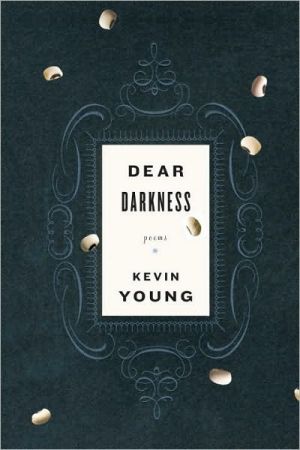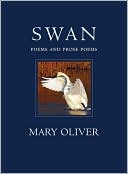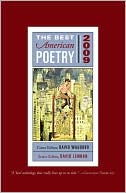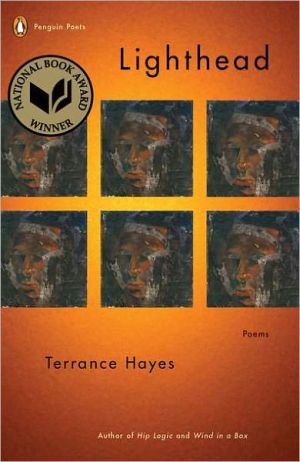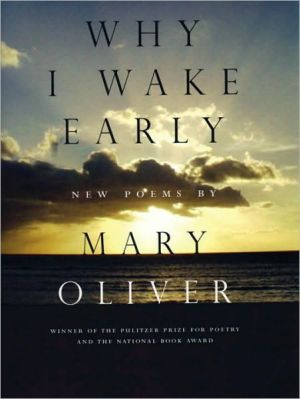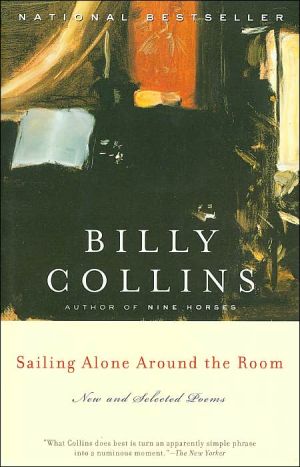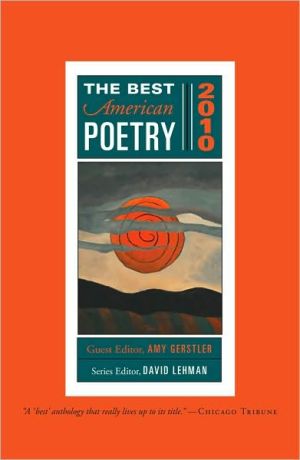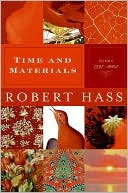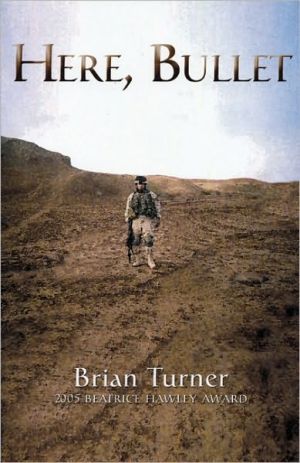Dear Darkness: Poems
Las Vegas, Nashville, Despair, the Midwest, "Bar-B-Q Heaven," and his family's Louisiana home: these are the American places that Kevin Young visits in his sixth book of poetry. Begun as a reflection on family and memory, Dear Darkness became a book of elegies after the sudden death of the poet's father, a violent event that silenced Young with grief until he turned to rhapsodizing about the food that has sustained him and his Louisiana family for decades. Flavorful, yet filled with sadness,...
Search in google:
Delivered in Young’s classic bluesy tone, this powerful collection of poems about the American family, smoky Southern food, and the losses that time inevitably brings “bristles with life, nerve and, best of all, wit” (San Francisco Chronicle).Publishers WeeklyPerhaps the most prominent African-American poet of his generation, the prolific Young (For the Confederate Dead) begins his sixth book, which gathers sets of independent short poems-some very funny, some heartbreaking, almost all in deftly enjambed, uncommonly various lines-with evocations of his childhood, at once cozy and surrounded by half-secret threats: "Back/ in the day, my mother cut my afro/ every few months, bathroom layered/ with headlines proclaiming the world's end." Young then launches into odes to foods, many (but not all) of them from African-American traditions: "I know you're the blues/ because loving you/ may kill me," says "Ode to Pork." Other work finds lessons in country and country-rock music ("On Being the Only Black Person at the Johnny Paycheck Concert"). For all the humor, and all the autobiography, in this big book, Young digs deepest and sounds most powerful when he returns to the unlucky, unlovely, generalized personae of blues, who become in his hands at once a source of energy and a means for elegy: "Let me be what/ dust has to be, settling// over everything," he says in the bluesy "Lullaby," "& I promise to dream// of new houses & old/ loves no longer." (Sept.)Copyright © Reed Business Information, a division of Reed Elsevier Inc. All rights reserved.
EulogyTo allow silenceTo admit it in usalways movingJust pastsenses, the darknessWhat swallows usand we live amongstWhat lives amongst us*These grim anchorsThat brief sanctitythe seaCast quite farwhen you seek—in your hats blackand kerchiefs—to bury me*Do not weepbut once, and a longtime thenThereafter eat tillyour stomach spills overNo more! you’ll crytoo full for your eyesto leak*The words will wait*Place me in a plainpine box I have beenfor years buildingIt is splintersnot silverIt is filled of hair*Even the tonguesof bells shall still*You who will bearmy body alongSpirit me into the sixDo not startleat its lack of weightHow lightI shall be releasedWhat we lovewill leave usor is itwe leavewhat we love,I forget—Today, bellyfull enoughto walk the blockafter all weektoo coldoutside to smile—I think of you, warmin your underground roomreading the bookof bone. It’s hard going—your body a deadlanguage—I’ve begunto feel, if nothope then whatcomes just after—or before—Let’s not call itregret, butthis weight,or weightlessness,or justplain waiting.The ice wantingagain water.The streams of two planesa cross fading.I was so busytelling you this I forgotto mention the sky—how in the duskits steely edgeshave just begun to rust.Ode to BoudinYou are the chewing gumof God. You are the reasonI know that skinis only that, holdsmore than it meets.The heart of you is somethingI don’t quite getbut don’t want to. Evena fool like me can seeyour brokenbeauty, the wayout in this world where mostthings disappear, driveninto ground, you are groundalready, & like riceyou rise. Drunken deacon,sausage’s half-brother,jambalaya’s baby mama,you bring me backto the beginning, to where things liveagain. Homemade saviour,you fed me the daymy father sat under flowerswhite as the gloves of pallbearerstossed on his bier.Soon, hands will lower himinto ground richerthan even you.For now, root of allremembrance, your thick chainsets me spinning, thinkingof how, like the small,perfect, possible, silent soulyou spill outlike music, my daddydead, or grief,or both—afterward his sistersmy aunts dancingin the yard to a car radiotuned to zydecobeneath the pecan trees.
Watching the Good Trains Go By 3Sweet BloodCotillionSweet Blood 7Cousins 9Nineteen Seventy-Five 11Prescription 13Tuff Buddies 16Bloodlines 18The Halt-Cart 20Primary 22No Offense 24Field Trip 25Flood 27CortegeAunties 29PallbearingLabyrinth 32Pallbearing 34Victuals 36Hurricane 37Eulogy 38See That My Grave Is Kept Clean 40Insurance 41Inheritance 43Uncles (Blood) 45Casting 47Black Cat BluesClose CallOde to My Scars 51Ode to My Feet 52Black Cat Blues 53Childhood 54Adolescence 55Ode to My Sex 56Short End Blues 57Bachelorhood 58Lost Dog Blues 59Hang Dog Blues 61To My Near-Mistress 63Something Borrowed Blues 64Slow Drag Blues 66Farewell TourOn My Mind 67Flash Flood Blues 68Lime Light Blues 69Bling Bling Blues 71Set List 73Why I want my favorite band to break up 74On Being Blind 75Dirty Deal Blues 76Ode to My Father's Feet 77Up South Blues 78Ode to the Midwest 79Ode to the South 81Uncles (Play) 83Young & Son's Pawn & GunOde to Pork 87Ode to Chicken 88Ode to Crawfish 89Ode to the Buffalo 90Ode to Wild Game 92Ode to Homemade Wine 93Ode to Okra 95Ode to Kitchen Grease 97Ode to Grits 98Ode to Chitlins 100Ode to Greens 103Say WhenGreat West CasualtyLullaby 107Sunday Drive 108Hard Headed Blues 110Stay 112Another Autumn Elegy 113Burial 115Toll 116Death Letter 117Daylight Savings 118Say When 119Quartet 121Book Rate 122New England Ode 123Amen 125Ode to the Hotel Near the Children's Hospital 126Redemption 5[actual symbol not reproducible] 128Ring of Fire129May Day Blues 131Not TodayFarm Team 133I shall be released 135I walk the line 137I hope it rains at my funeral 140I dream a highway 141I don't burn 143I am trying to break your heart 145Cambridge Ode 147Dunk Tank 148Everybody Knows This Is Nowhere 150Grievous Angel 152I saw the light 153On Being the Only Black Person at the Johnny Paycheck Concert 155Last Ditch Blues 158Deep Six Blues 160Eulogy 161Serenade 163Young & Sons' Bar-B-Q HeavenOde to Catfish 167Prayer for Black-Eyed Peas 168Ode to Gumbo 170Elegy for Maque Choux 174Ode to Sweet Potato Pie 176Ode to Barbeque Sauce 177Ode to Watermelon 179Ode to Turtle Soup 182Song of Cracklin 186Ode to Hot Sauce 187Ode to Pepper Vinegar 189Ode to Fig Preserves 191Ode to Cushaw 193Ode to Boudin 195
\ Publishers WeeklyPerhaps the most prominent African-American poet of his generation, the prolific Young (For the Confederate Dead) begins his sixth book, which gathers sets of independent short poems-some very funny, some heartbreaking, almost all in deftly enjambed, uncommonly various lines-with evocations of his childhood, at once cozy and surrounded by half-secret threats: "Back/ in the day, my mother cut my afro/ every few months, bathroom layered/ with headlines proclaiming the world's end." Young then launches into odes to foods, many (but not all) of them from African-American traditions: "I know you're the blues/ because loving you/ may kill me," says "Ode to Pork." Other work finds lessons in country and country-rock music ("On Being the Only Black Person at the Johnny Paycheck Concert"). For all the humor, and all the autobiography, in this big book, Young digs deepest and sounds most powerful when he returns to the unlucky, unlovely, generalized personae of blues, who become in his hands at once a source of energy and a means for elegy: "Let me be what/ dust has to be, settling// over everything," he says in the bluesy "Lullaby," "& I promise to dream// of new houses & old/ loves no longer." (Sept.)\ Copyright © Reed Business Information, a division of Reed Elsevier Inc. All rights reserved.\ \ \ \ \ Library JournalNational Book Award finalist Young (Jelly Roll) energizes the poems in his latest collection with subtle and not-so-subtle references to songs as well as to biblical passages. The book's title alludes to Simon and Garfunkle's "The Sounds of Silence" (1965), which was partly inspired by the assassination of JFK. Occasioned by the death of Young's father, these poems muse on the disconnections of life, generally using free association with religious, historical, and racial undertones, though there are a few list poems. Divided into several sections, this book asks the question, How does losing a parent affect one's view of life and even of one's deepest self? In answer, Young recounts scenes from his own childhood as well as his father's illness, death, funeral procession, and bereavement dinner. Reminiscent of Marc Connelly's play, "The Green Pastures," the final section contains a series of informal odes to various foods that would be found in a picnic. Ultimately, the collection effectively becomes an exercise in soul-searching even as it eulogizes Young's father. Highly recommended for all libraries.\ —Diane Scharper\ \ \ \ From the Publisher“Young is a fluid and bold interpreter of American culture and attitude, writing shrewd blues and droll lyrics that upend and undo catchphrases, familiar figures, and down home habits . . . Young reaches for myth but can’t resist wit, playing hilarious tribute to aunties and uncles, dealing in double entendres, capturing the topsy-turvy, otherworldly ambience of Las Vegas. And even while deeply mourning his father, he pulls a Neruda and writes funny, sly odes to the ordinary, focusing on food, metaphors for desire, the life force, and death’s endless consumption.” —Booklist\ “[Young is] perhaps the most prominent African American poet of his generation . . . For all the humor, and all the autobiography, in this big book, Young digs deepest and sounds most powerful when he returns to the unlucky, unlovely, generalized personae of blues, who become in his hands at once a source of energy and a means for elegy.” —Publishers Weekly\ “National Book Award finalist Young energizes the poems in his latest collection with subtle and not-so-subtle references to songs as well as to biblical passages . . . Ultimately, the collection effectively becomes an exercise in soul-searching even as it eulogizes Young’s father.” —Library Journal\ \ \
